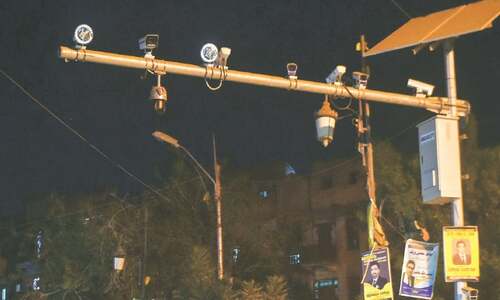HYDERABAD: Speakers at a seminar on peasants’ rights said that peasants and rural workers remained vulnerable and unprotected because of the relevant authorities’ failure to implement existing laws in Sindh.
Sindh Human Rights Commission (SHRC) chairperson retired Justice Majida Rizvi said at the seminar organised by Hari Welfare Association (HWA) in Nawabshah on Saturday that there was no accountability of officials in different departments and people were not aware of laws dealing with peasants and rural workers’ rights.
She said that monitoring mechanism needed to be developed in the SHRC and all departments should submit annual progress report on implementation of laws.
Sindh Assembly member and chairman of Public Accounts Committee, Ghulam Qadir Chandio, said that Sindh government was striving to protect rights of peasants and labourers.
He said that Sindh Assembly had enacted many laws dealing with rights of labourers, peasants, women, children and vulnerable segments of society. It was time to ensure implementation of laws and protection of human rights, he said, adding that Sindh government would never go against peasants and labourers’ rights.
HWA president Akram Ali Khaskheli said that peasants were not registered across the province as per Sindh Tenancy Act of 1950, hence when landlords violated peasants’ rights, they could not claim their share in the harvest.
He lamented police often got peasants released from custody of landlords under judicial orders but did not lodge cases against the landlords to hold them accountable for the crime of holding fellow humans in bondage.
He said that peasants being powerless could not dare lodge FIRs against landlords thus police should lodge FIRs on behalf of state under relevant sections of law. Condition of rural workers was deplorable as they remained without social security, he said.
He termed Sindh Women Agriculture Workers Act an important development as it recognised rights of millions of women agriculture workers that included right to earn, unionise, have written contract and receive social security and welfare benefits.
He said that implementation of the act would be a challenge because of structural barriers in agriculture economy and complexities. He urged the government to notify this act, set up field offices and register female workers. The government should provide representation of women agriculture workers in board and tripartite councils.
Qamarunnisa Dhamrah, G.M. Khaskheli advocate, Lal Chand, Naila Gill, Ramesh Kumar, Jan Mohammad Khan, Abid Lashari, Shahzad Ahmed, Asiful Bashar, Asif Raza Ashiq and others also spoke at the seminar.
Published in Dawn, April 11th, 2021














































Dear visitor, the comments section is undergoing an overhaul and will return soon.